Are you planning a trip to Phong Nha but worried about staying safe? Phong Nha safety tips are essential for ensuring a hassle-free and enjoyable experience in this adventure-packed destination. With its rugged terrain, captivating caves, and vibrant local culture, understanding how to navigate and stay secure can transform your journey into a memorable one. Let’s explore what you need to know for a safe and exciting trip!
Phong Nha offers an array of adventures, from trekking through lush jungles to exploring breathtaking caves like Hang Son Doong, the world’s largest. This guide provides clear safety tips for transportation, outdoor activities, and cultural interactions. Whether it’s preparing for cave expeditions or understanding local etiquette, these insights will make your trip both safe and enriching.
But this is just the beginning! Dive deeper into our detailed safety guide to uncover expert recommendations, practical tips, and insights from seasoned travelers. Visit PhongNhaHomestay.com to explore the ultimate Phong Nha safety tips and make your adventure unforgettable!
Essential Travel Preparations for Phong Nha Safety
1.1 Choosing the Best Time to Visit Phong Nha
Phong Nha’s beauty shines year-round, but timing your trip is crucial to ensuring a safe and enjoyable experience. Dry season (January to August) is ideal for exploring caves and engaging in outdoor activities, with clear skies and manageable humidity. The rainy season (September to November) can lead to flooded caves and limited access, so plan accordingly to avoid disruptions.
Quick Tips:
- Best months: March to May (for pleasant weather and fewer crowds).
- Avoid: Peak rainy season in October for safety.
- Pro Tip: Book cave tours early during peak months, as slots fill quickly.
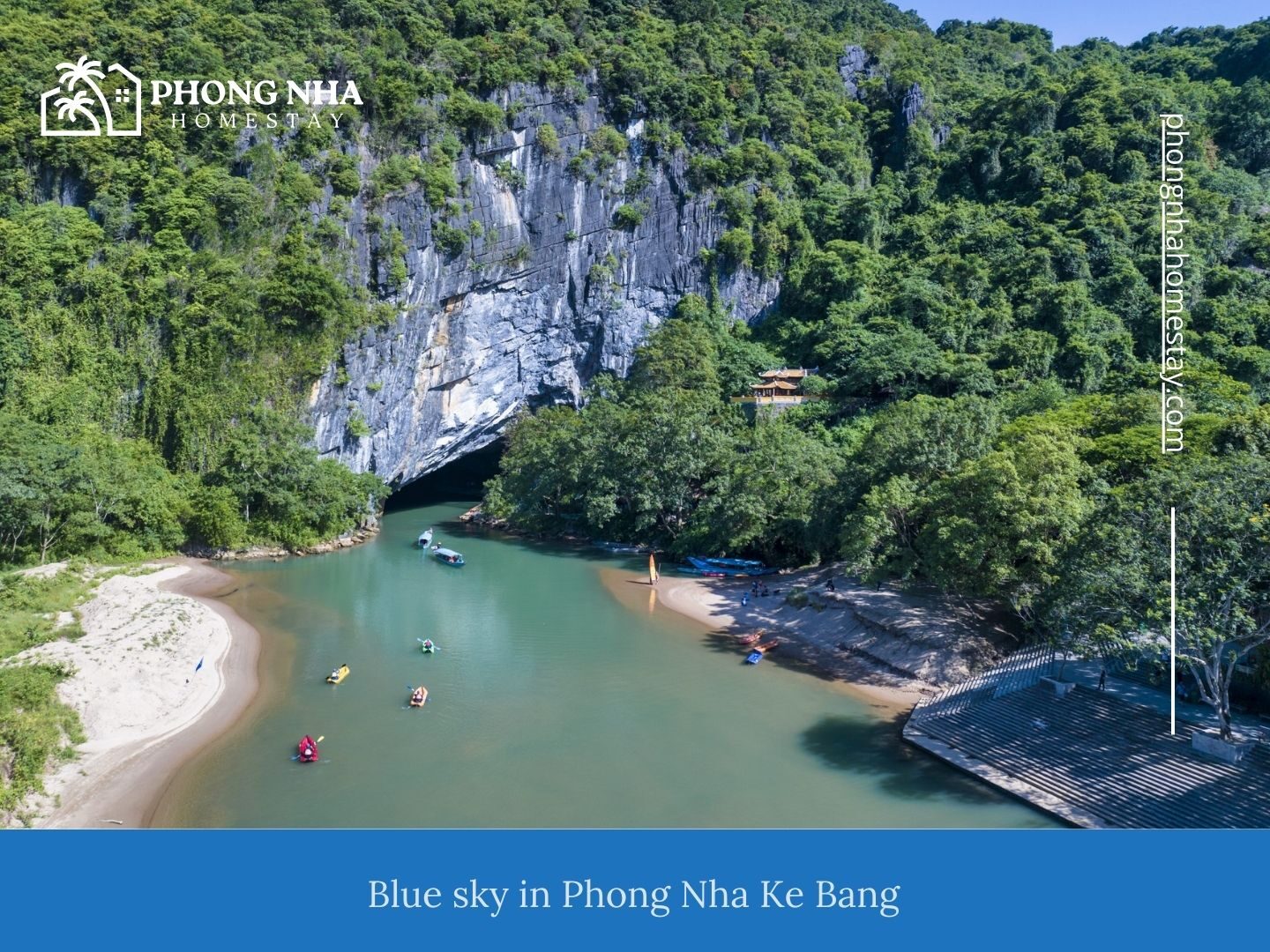
1.2 Necessary Travel Documents and Permits
Traveling to Phong Nha requires basic documentation but ensuring you have all essentials avoids last-minute stress. For international visitors, valid passports and visas are mandatory. Some activities, like visiting Hang Son Doong, require special permits due to conservation regulations.
Checklist for Documents:
- Passport: Ensure 6-month validity.
- Visa: Apply online via Vietnam’s e-Visa system.
- Permits for specific tours: Arrange through licensed tour operators like Oxalis Adventures.
1.3 Vaccinations and Health Precautions
Staying healthy in Phong Nha begins with proper vaccinations and awareness of potential health risks. Ensure you’re vaccinated for hepatitis A, typhoid, and tetanus before traveling. Carry essential medications for common issues like motion sickness, insect bites, and dehydration.
Health Tips:
- Drink bottled water; avoid untreated sources.
- Use insect repellents to prevent bites, especially in jungle areas.
- Keep a basic first-aid kit, including bandages and antiseptic cream.
1.4 Packing List for a Safe Trip
Packing smartly ensures comfort and safety during your Phong Nha adventures. Focus on lightweight, breathable clothing for the humid climate and sturdy footwear for trekking and cave exploration.
Packing Essentials:
- Clothing: Quick-dry shirts, trekking pants, waterproof jackets.
- Footwear: Non-slip hiking boots.
- Accessories: Flashlight, sunscreen, reusable water bottles.
- Pro Tip: Pack a waterproof bag for gadgets and documents during water activities.
Transportation and Accessibility Safety Tips
2.1 Safe Travel Routes to Phong Nha
Phong Nha is accessible by bus, train, and air, with each option offering unique benefits. Direct buses from major cities like Hanoi, Hue, and Da Nang provide convenience, while trains to Dong Hoi (40 km away) offer scenic views followed by a short taxi or bus ride to Phong Nha. For international visitors, flying into Dong Hoi Airport is the quickest option.
Travel Tips:
- Buses: Book sleeper buses for overnight comfort (starting at 250,000 VND).
- Train to Dong Hoi: Opt for soft seats or sleeper cabins for a relaxed journey.
- Flight to Dong Hoi: Direct domestic flights are available from Hanoi and Ho Chi Minh City.
2.2 Tips for Using Local Transportation (Buses, Taxis, Motorbikes)
Getting around Phong Nha is easy with local transportation, but safety is key. Buses and taxis are affordable and widely available, while motorbike rentals allow for flexibility. For first-timers, choosing reputable providers ensures a safer experience.
Safety Considerations:
- Buses: Use local buses for budget-friendly travel (35,000 VND one way from Dong Hoi).
- Taxis: Confirm prices before rides; trusted services like Mai Linh ensure fair rates.
- Motorbikes: Always wear helmets and carry an international driving license. Daily rental rates start at 150,000 VND.
Pro Tip: Avoid night travel on rural roads for added safety.
2.3 Navigating Phong Nha Safely by Bike or On Foot
Exploring Phong Nha by bike or foot is rewarding but requires preparation. The flat terrain of Bong Lai Valley and the quaint village routes make cycling enjoyable, while walking lets you savor local culture up close. Stick to mapped paths and carry essentials like water and a phone with GPS.
Biking & Walking Tips:
- Best Bike Routes: Bong Lai Valley for scenic views and Duck Stop experiences.
- Walking Paths: Nuoc Mooc Eco Trail offers safe and picturesque hiking options.
- Essentials: Sunscreen, hats, and lightweight gear for comfort during outdoor activities.
Pro Tip: Rent bikes from local homestays for insider tips on the best routes!
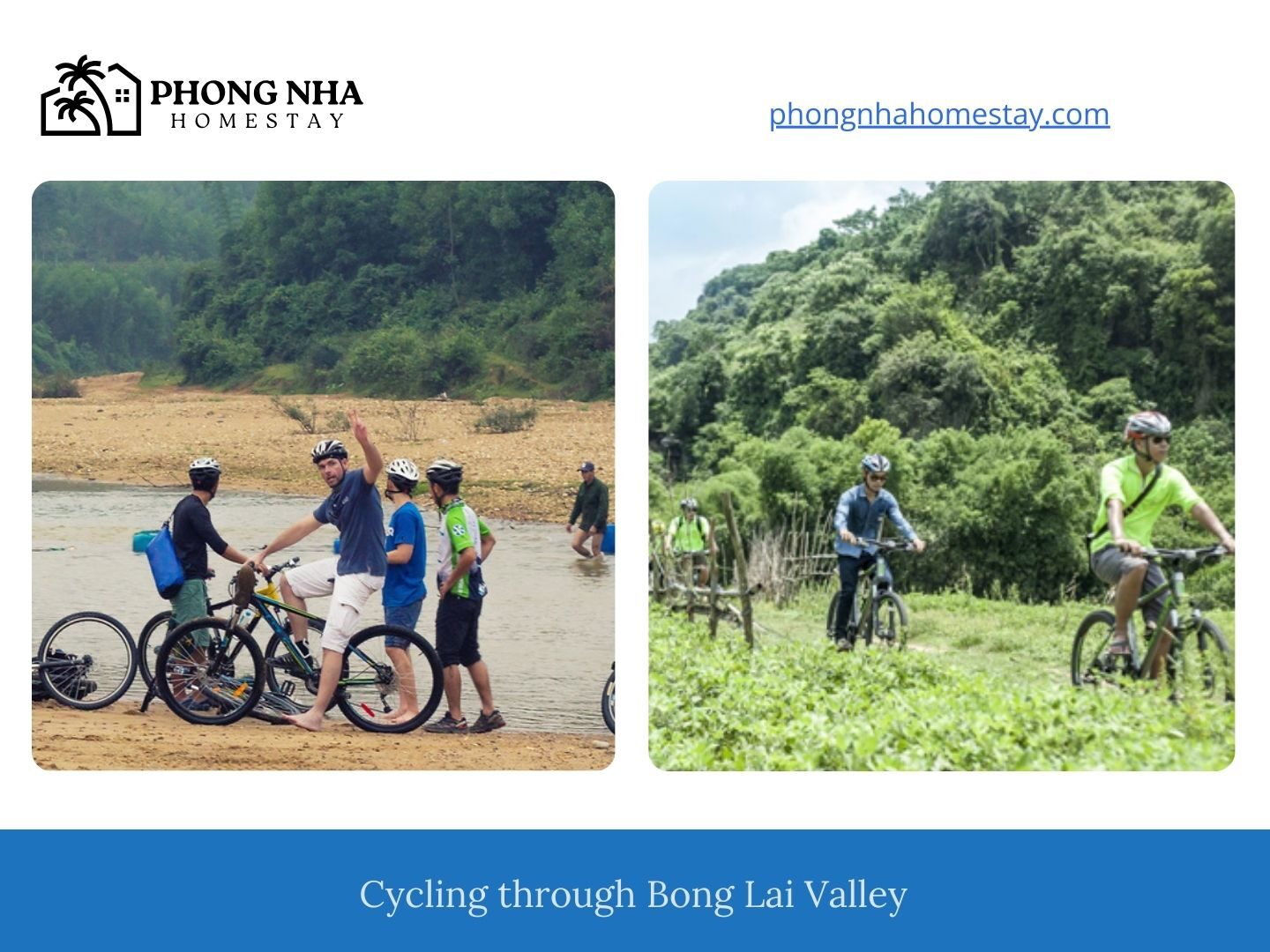
Accommodation Safety Considerations
3.1 Choosing Safe and Reliable Accommodations
Selecting the right accommodation in Phong Nha ensures both comfort and safety for your trip. Look for homestays and hotels with strong reviews, reliable security measures, and easy access to main attractions. Popular choices include Phong Nha Farmstay for its serene environment and high safety standards or Hung Phat Bungalow for a welcoming, family-run atmosphere.
Key Tips for Safe Accommodation:
- Check Reviews: Use platforms like TripAdvisor or Booking.com for guest feedback.
- Safety Features: Prioritize places with 24-hour reception and secure locks.
- Location Matters: Choose accommodations near the town center or popular tourist spots to minimize isolated travel.
Recommended Places:
Phong Nha Farmstay
- Address: Cu Nam Village, Bo Trach District.
- Price Range: 35–70 USD/night.
- Pro Tip: Perfect for countryside charm with modern amenities.
Hung Phat Bungalow
- Address: Phong Nha outskirts, overlooking marshes.
- Price Range: Moderate.
- Pro Tip: Ask the host for tips on biking routes.
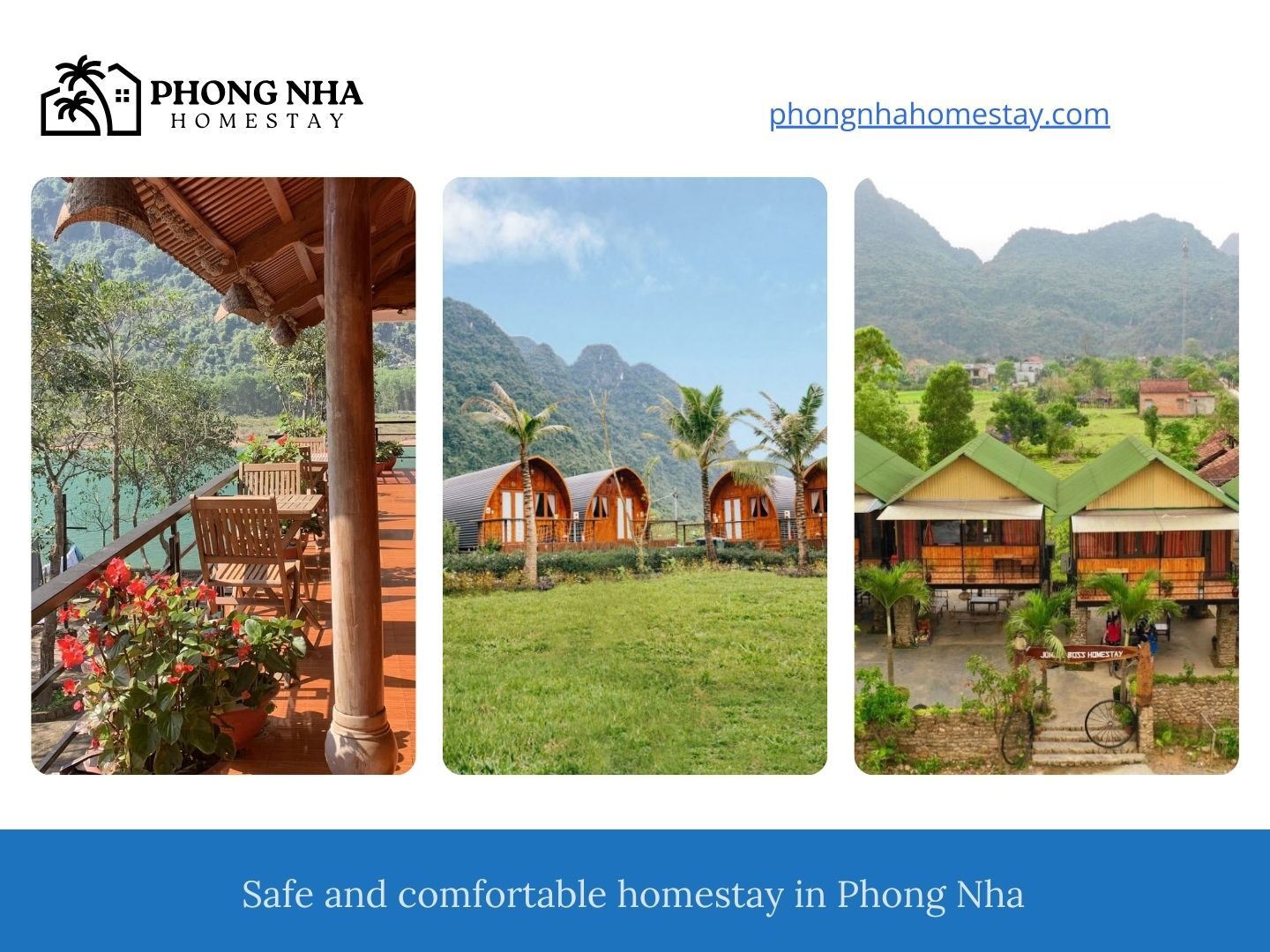
3.2 Emergency Contacts and Support at Hotels/Homestays
Knowing emergency protocols and support options at your accommodation is vital for peace of mind. Most homestays and hotels in Phong Nha provide local emergency contacts and can assist in case of health or safety concerns. Hosts in family-run homestays are particularly helpful, often offering personal assistance beyond what larger hotels provide.
Emergency Essentials:
- Phone Numbers: Save local police and medical service numbers.
- Police: 113
- Ambulance: 115
- Hotel Support: Confirm the availability of on-site assistance for emergencies.
- Travel Insurance: Ensure your policy includes coverage for adventure activities like caving or trekking.
Pro Tip: Upon check-in, ask for a printed list of nearby clinics, pharmacies, and taxi services for quick access in an emergency.
Caving and Adventure Safety Guidelines
4.1 Preparation for Caving Expeditions
Proper preparation is the cornerstone of a safe and enjoyable caving experience in Phong Nha. Research the cave you’ll explore, whether it’s the magnificent Hang Son Doong or the adventurous Hang En, and understand the physical demands involved. Ensure you are in good health and carry a checklist of essentials like permits, a reliable guide, and appropriate clothing.
Preparation Tips:
- Research: Know the difficulty level and route.
- Permits: Obtain through licensed operators like Oxalis Adventure.
- Health Check: Stay hydrated and avoid strenuous activities before your expedition.
4.2 Professional Guided Tours and Their Importance
Always opt for professional guided tours when caving in Phong Nha. Licensed guides provide critical support, including navigation, safety protocols, and first-aid assistance. For example, Hang Va 2-Day Expedition offers skilled guides who ensure both safety and an enriching experience.
Why Guided Tours Matter:
- Expertise: Guides know the terrain and potential risks.
- Access: Many caves, like Hang Son Doong, are only accessible via authorized tours.
- Pro Tip: Book tours early, as spots are limited, especially during peak season.
4.3 Equipment and Gear Essentials
The right gear can make or break your caving experience. Invest in high-quality equipment like headlamps, sturdy boots, and waterproof bags to navigate caves safely. Always inspect rented equipment for reliability, especially helmets and harnesses.
Gear Checklist:
- Headlamp: With extra batteries.
- Footwear: Non-slip hiking boots.
- Clothing: Quick-dry, breathable layers.
Pro Tip: Use a dry bag to protect your gadgets from water hazards.
4.4 Staying Safe Inside Caves (Navigation, Mud, Water Hazards)
Cave environments in Phong Nha, such as the Tu Lan Cave System, can be challenging, with mud, water crossings, and narrow pathways. Follow marked trails, keep close to your guide, and avoid touching delicate rock formations. Be cautious of slippery surfaces and sudden water currents.
Safety Tips Inside Caves:
- Stick to Paths: Avoid unmarked areas.
- Watch for Hazards: Use your headlamp to spot muddy patches or water hazards.
- Stay Together: Always remain within sight of your group.
4.5 First Aid Preparedness
First aid readiness is essential for any caving adventure. Carry a compact kit tailored to the environment, including bandages, antiseptic wipes, and medications for common issues like insect bites or motion sickness. Guides usually have comprehensive kits, but having your own ensures immediate access in minor emergencies.
First Aid Kit Essentials:
- Bandages: For cuts or blisters.
- Antiseptic: For cleaning wounds.
- Pain Relief: Ibuprofen or paracetamol.
- Pro Tip: Include a whistle to signal for help if separated from the group.
General Outdoor Safety in Phong Nha
5.1 Dealing with Weather Extremes
Phong Nha’s weather can vary dramatically, especially during the rainy season. Flooding between September and November often limits access to caves and trails, while the dry season offers better conditions but intense heat. Stay updated on weather forecasts and plan activities accordingly to ensure safety.
Weather Tips:
- Dry Season: Wear breathable clothing and carry plenty of water.
- Rainy Season: Avoid flood-prone areas and keep a waterproof jacket handy.
- Pro Tip: Visit Paradise Cave during hotter months for its naturally cool environment.
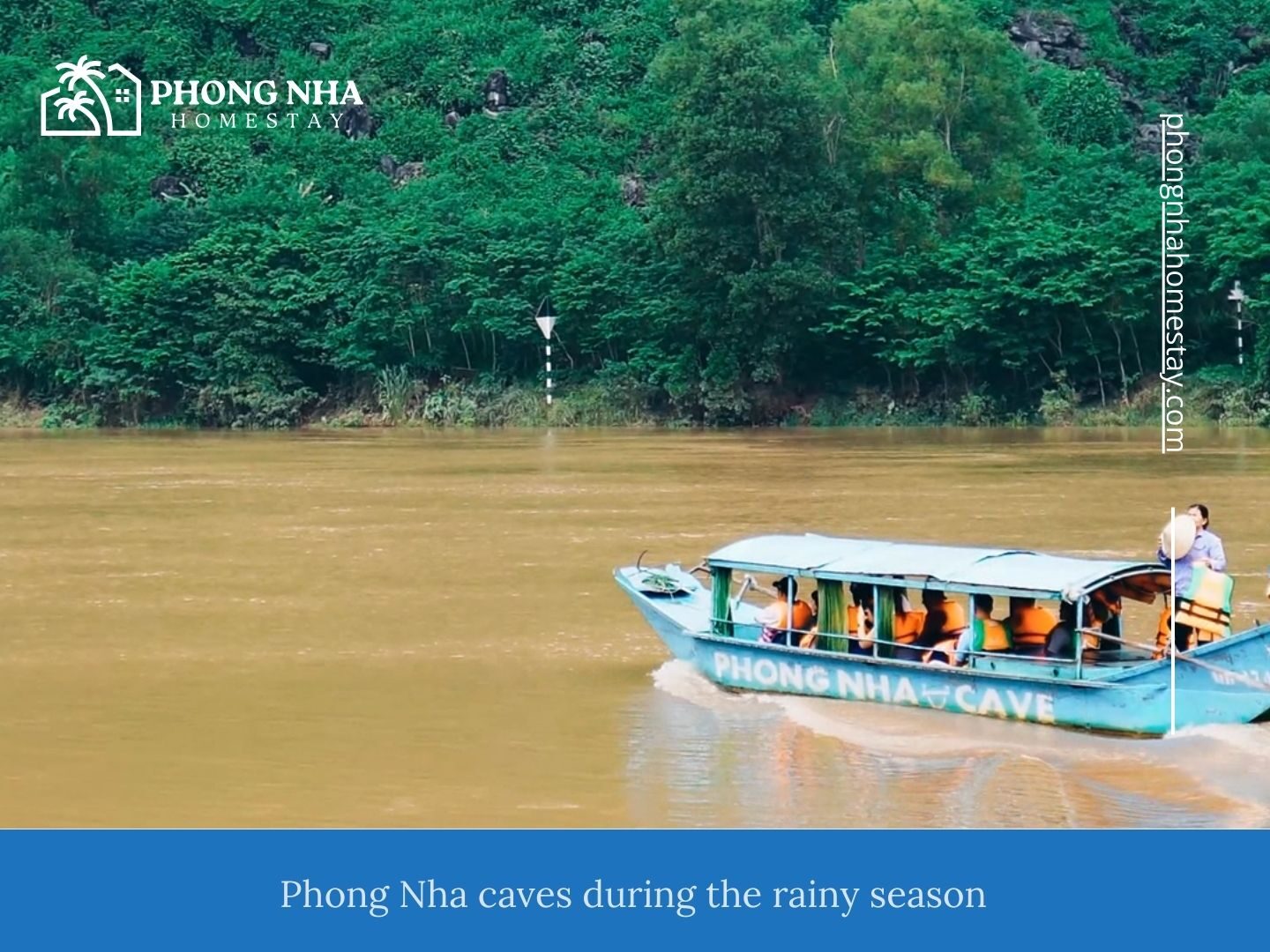
5.2 Jungle Trekking Safety Tips
Phong Nha’s lush jungles, like those surrounding Nuoc Mooc Eco Trail, are a haven for trekkers, but safety is paramount. Stick to guided treks to avoid getting lost, and wear proper gear to handle uneven terrain and leech-prone areas.
Trekking Essentials:
- Clothing: Long sleeves and pants to protect against insects.
- Shoes: Sturdy, waterproof hiking boots.
- Pro Tip: Carry a whistle and a map for emergencies.
Recommended Trek:
- Nuoc Mooc Eco Trail
- Features: Scenic rope bridges and clear rivers.
- Entry Fee: 80,000 VND.
- Pro Tip: Ideal for beginners looking for safe outdoor adventures.
5.3 River and Water Activity Safety Guidelines
Phong Nha’s rivers, like the Chay River, are perfect for kayaking and swimming but require caution. Swift currents and slippery rocks can pose risks. Always wear a life jacket and choose reputable operators for water activities.
Water Safety Checklist:
- Life Jackets: Essential for kayaking or swimming.
- Group Activities: Stick with your group to avoid isolation.
- Pro Tip: Kayak in calmer waters near the Nuoc Mooc Eco Trail for a safer experience.
5.4 Wildlife Awareness and Precautions
Phong Nha’s biodiversity is stunning, but wildlife encounters require care. From harmless butterflies to venomous snakes, being vigilant helps avoid unwanted situations. Avoid provoking animals and steer clear of dense vegetation during treks.
Wildlife Safety Tips:
- Avoid Feeding Animals: It disrupts their natural behavior.
- Stay on Trails: Reduces the risk of snake encounters.
- Pro Tip: Bring insect repellent to protect against bites, especially in humid areas.
Health and Emergency Preparedness
6.1 Access to Local Medical Facilities
Phong Nha offers limited medical facilities, but reliable care is available in nearby Dong Hoi. For minor ailments, local clinics in Phong Nha can assist, while serious cases should be directed to Quang Binh General Hospital or Dong Hoi International Hospital. Always carry a basic first-aid kit for immediate needs.
Local Medical Resources:
- Phong Nha Clinic: Suitable for minor treatments.
- Dong Hoi International Hospital: Comprehensive care, including emergency services.
- Address: Dong Hoi City, Quang Binh.
- Pro Tip: Ensure your travel insurance covers hospital visits for smoother reimbursement.
6.2 Emergency Numbers and Support Services
Knowing emergency contacts is vital for handling unforeseen situations in Phong Nha. Save key numbers for local police, medical services, and your accommodation. Many hotels and homestays offer on-call support or connections to nearby services.
Emergency Contact List:
- Police: 113
- Ambulance: 115
- Tourist Hotline: 1800 1767
- Pro Tip: Save these numbers in your phone and have them written on a card in case of signal issues.
6.3 Common Health Concerns (Dehydration, Insect Bites)
Phong Nha’s tropical environment makes dehydration and insect bites common health risks. Drink plenty of bottled water and wear insect-repellent clothing to stay safe. For bites or stings, clean the area immediately and use antihistamines if swelling occurs.
Health Precaution Checklist:
- Dehydration: Carry a reusable water bottle and drink frequently.
- Insect Protection: Use DEET-based repellents and wear long sleeves.
- Pro Tip: Avoid scratching bites to prevent infection.
6.4 Insurance Coverage Recommendations
Adventure activities like caving and trekking require comprehensive travel insurance. Look for plans that cover medical emergencies, evacuation, and gear replacement. Specialized coverage for activities in places like Hang Son Doong is recommended due to its challenging terrain.
Insurance Tips:
- Coverage: Ensure policies include emergency evacuation and high-risk activities.
- Providers: Choose insurers with good international claims support.
- Pro Tip: Check if your tour operator requires proof of insurance before confirming bookings.
Cultural and Social Safety Practices
7.1 Respecting Local Customs and Traditions
Phong Nha is rich in culture, and respecting local customs fosters positive interactions. Dress modestly when visiting villages or religious sites, and avoid public displays of affection, as these are seen as inappropriate. Greeting locals with a warm smile and a slight bow shows respect and is greatly appreciated.
Key Customs to Respect:
- Dress Code: Cover shoulders and knees in villages and temples.
- Behavior: Avoid loud conversations in sacred or rural areas.
- Pro Tip: Learn a few basic Vietnamese phrases, like “Xin chào” (Hello), to connect with locals.
7.2 Guidelines for Engaging with Local Communities
Engaging with Phong Nha’s communities, such as the Nguon ethnic group, is an enriching experience when done respectfully. Ask permission before taking photos of people or private property, and support local businesses by shopping at markets or eating at family-run restaurants.
Community Engagement Tips:
- Photography: Always ask before taking pictures.
- Shopping: Visit local markets for authentic souvenirs.
- Pro Tip: Share small gestures of gratitude, like bringing gifts for hosts during homestay visits.
Suggested Visit:
- Tan Hoa Village
- Experience: Traditional meals and interactions with Nguon locals.
- Pro Tip: Book a local dining experience through a reputable homestay.
7.3 Avoiding Common Tourist Scams
While Phong Nha is relatively safe, being cautious prevents falling prey to scams. Overcharging for transportation and counterfeit souvenirs are common issues. Use trusted services and clarify prices before engaging in transactions.
Scam Prevention Tips:
- Transportation: Use metered taxis or apps like Grab.
- Souvenirs: Buy from certified stores or well-reviewed markets.
- Pro Tip: Avoid unsolicited offers for tours; book directly through trusted operators like Oxalis Adventure.
Food and Water Safety
8.1 Safe Dining Practices in Phong Nha
Phong Nha’s culinary scene offers incredible local dishes, but prioritizing safe dining practices ensures a worry-free experience. Stick to reputable restaurants or family-run eateries that maintain good hygiene standards. Avoid street food that looks stale or has been left uncovered.
Dining Tips:
- Where to Eat: Opt for popular spots like Family Restaurant or Moi Moi Restaurant.
- What to Check: Ensure utensils and plates are clean before use.
- Pro Tip: Ask locals for recommendations—they often lead to hidden gems with high-quality food.
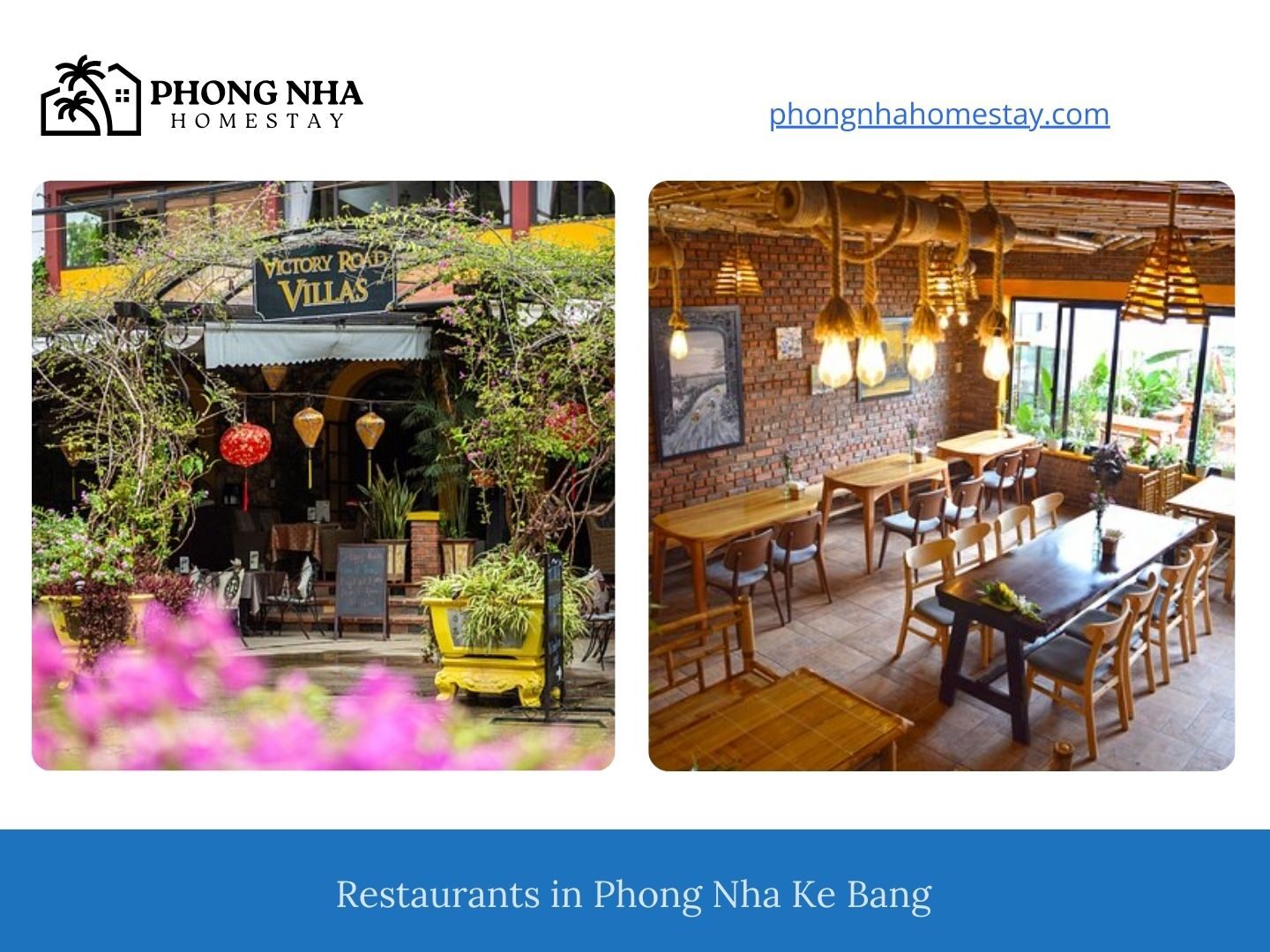
8.2 Hydration Tips and Water Purification Options
Staying hydrated is essential in Phong Nha’s tropical climate, but water safety is equally important. Drink only bottled or filtered water, and avoid consuming tap water or ice from unreliable sources. Carry a reusable bottle with a built-in filter for added safety during excursions.
Hydration Essentials:
- Bottled Water Brands: Stick to trusted brands like Aquafina or La Vie.
- Filters: Use portable purifiers like LifeStraw for treks and cave tours.
- Pro Tip: Refill your bottle at homestays with filtered water to save costs and reduce plastic waste.
8.3 Local Cuisine Considerations for Sensitive Stomachs
Phong Nha’s specialties, such as Chao Canh (noodle soup) and Bot Loc Cake, are delightful but may contain unfamiliar ingredients. Start with smaller portions to gauge your tolerance, and avoid overly spicy or greasy dishes if you have a sensitive stomach. Opt for freshly prepared meals to minimize the risk of foodborne illnesses.
Cuisine Safety Tips:
Must-Try Dishes:
- Chao Canh: Light and flavorful, suitable for most diets.
- Bot Loc Cake: Best enjoyed at local eateries like The Pub with Cold Beer.
- Pro Tip: Pair your meal with herbal teas like green tea for digestion.
Recommended Restaurants:
Moi Moi Restaurant
- Specialty: Traditional farm-to-table dishes.
- Pro Tip: Explore their pepper farm while waiting for your meal.
Wild Boar Eco Farm
- Specialty: Freshly cooked pork with scenic views.
- Pro Tip: Great for a relaxing swim and a hearty meal after exploring.
Tech and Communication Safety
9.1 Staying Connected (SIM Cards, Internet Access)
Staying connected in Phong Nha is easy with affordable SIM cards and reliable internet options. Local SIM cards from providers like Viettel and Mobifone offer great coverage, even in remote areas. Most accommodations, including homestays and hotels, provide free Wi-Fi, making it simple to stay online.
Connection Tips:
- Where to Buy: SIM cards are available at airports or local shops in Dong Hoi.
- Plans: Look for tourist SIMs with 4GB+ daily data for under 200,000 VND.
- Pro Tip: Always carry a power bank during outdoor activities to keep devices charged.
Recommended Providers:
- Viettel: Best for nationwide coverage.
- Mobifone: Reliable for urban areas and popular tourist spots.
9.2 Protecting Personal Data While Traveling
Safeguarding your personal information while traveling is critical. Avoid using public Wi-Fi networks without a VPN, especially for accessing sensitive accounts. Keep your devices secure by enabling passcodes and two-factor authentication for important apps.
Data Protection Tips:
- Use VPNs: Protect your connection with apps like NordVPN or ExpressVPN.
- Secure Backups: Store important documents in cloud services like Google Drive.
- Pro Tip: Keep a printed copy of essential information, like your hotel address and emergency contacts, as a backup.
Avoid These Risks:
- Unsecured Wi-Fi: Use only password-protected networks.
- Lost Devices: Enable “Find My Device” services for easy tracking.
- Pro Tip: Avoid using shared computers for sensitive tasks like banking.
Sustainability and Environmental Safety
10.1 Eco-friendly Travel Practices in Phong Nha
Traveling responsibly in Phong Nha starts with adopting eco-friendly habits. Use reusable water bottles to minimize plastic waste and opt for bicycles or walking instead of motorized transport to reduce your carbon footprint. Many local homestays and eco-lodges also promote sustainable tourism practices.
Sustainable Tips:
- Transportation: Rent bicycles from local shops for eco-friendly travel.
- Reusable Essentials: Bring your own water bottle and shopping bags.
- Pro Tip: Stay at eco-conscious accommodations like Phong Nha Farmstay to support local sustainability efforts.
10.2 Preserving Natural Wonders (Caves, Forests, Rivers)
Phong Nha’s pristine landscapes, from its majestic caves to dense jungles, demand careful preservation. Avoid touching delicate formations inside caves like Paradise Cave or disturbing wildlife during jungle treks. Stick to marked trails to prevent environmental damage.
Conservation Do’s and Don’ts:
- Do: Follow guide instructions during cave tours to protect stalactites and stalagmites.
- Don’t: Leave litter or food waste in natural areas.
- Pro Tip: Participate in guided clean-up treks offered by local operators to give back to the environment.
Key Sites to Protect:
- Paradise Cave: Avoid touching limestone formations.
- Nuoc Mooc Eco Trail: Stick to designated paths to preserve flora.
10.3 Waste Management and Responsible Tourism Practices
Proper waste management is crucial for maintaining Phong Nha’s natural beauty. Dispose of trash in designated areas, and consider bringing back non-biodegradable waste if facilities are lacking. Support businesses that prioritize eco-friendly packaging and practices.
Responsible Tourism Tips:
- Waste Disposal: Use bins provided at tourist spots or carry trash with you.
- Shop Local: Buy souvenirs from eco-conscious vendors to encourage sustainability.
- Pro Tip: Avoid single-use plastics by carrying a bamboo straw and reusable utensils.
Eco-Friendly Spots:
- Moi Moi Restaurant: Uses farm-grown ingredients with minimal packaging.
- Wild Boar Eco Farm: Promotes sustainable practices in dining and tourism.
Phong Nha is an incredible destination filled with breathtaking caves, lush jungles, and vibrant local culture, but ensuring your safety is key to making the most of your adventure. By following these Phong Nha safety tips, from packing smartly to respecting local customs, you can enjoy a worry-free and unforgettable journey. Whether it’s preparing for weather extremes, staying hydrated during treks, or safeguarding your personal data, every small effort counts toward a secure and enjoyable experience.
For more expert advice and insider tips, visit PhongNhaHomestay.com and start planning your dream trip today!
